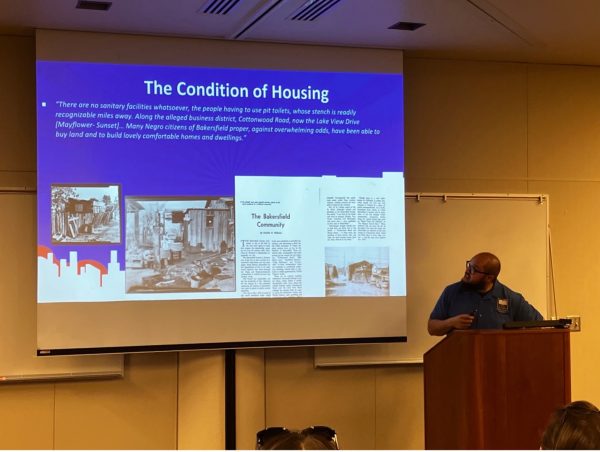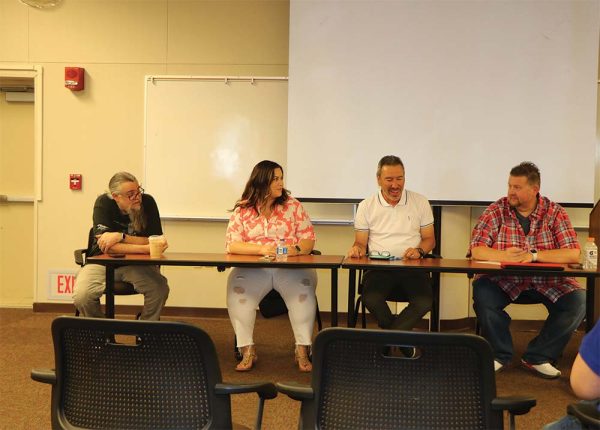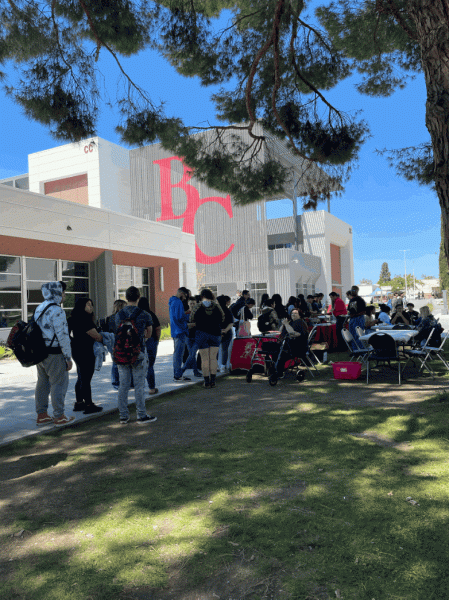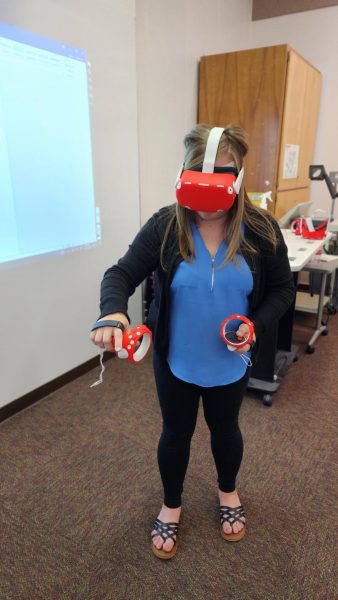Bakersfield College hosts panel about “Bridging the Racial Divide”
February 25, 2018
Bakersfield College hosted a panel of law enforcement officials in the Noman Levan Center on Feb. 20 for a 2018 public forum about transformational policing entitled “Bridging the Racial Divide.”
This panel was coordinated and moderated by Public Safety/Criminal Justice Professor Dr. Tommy Tucson, in an effort to enlighten BC students and attending members of the public, about the initiative measures being implemented across the nation to build and re-establish the bridge of divide created by racism prevalent throughout various law enforcement agencies in California, as well as the rest of the United States. The panel made it clear that the task of healing the amplified distrust of the police is extensive, advantageous and absolutely necessary.
The panel of law enforcement officials that participated in the public forum are Bakersfield Chief of Police Lyle Martin, Kern County Assistant District Attorney Scott Spielman, McFarland Chief of Police Scot Kimble, California Highway Patrol Commander Ron Seldon, and Federal Bureau of Investigation Special Resident Supervisory Agent Jose Moreno. The panel of individuals were directed by Tucson to provide a brief introduction to the attendees, which included each officials name, current post or assignment, years of service in career, and their motivation to participate in the panel. Tucson asked the attendees if they were aware that President Obama had established a President’s Task Force on 21st Century Policing to address to citizen revolt occurring in cities and towns all over the nation.
Tucson said, “Many people are unaware that the 14th amendment was enacted due to slavery and for the purpose of solidifying the status of recently freed people.” This amendment most likely benefits millions of second generation Americans whose family may have been immigrants as well. After explaining the relevance of this and other amendments, being the cornerstone of Constitutional Policing.
Tucson dove into the discussion of transformational policing and the first pillar of this training, which is “building trust and legitimacy.”
Chief Martin said, “Police and the community is a statement of conflict. My goal is to remove two words ‘and the’ so that the community is the police and the police is the community,” Chief Martin said. “If you don’t have trust and legitimacy none of it is going to work and if people don’t believe in what your doing then you won’t have legitimacy.”
McFarland Chief of Police Scot Kimble said, “When you get right down to it trust and legitimacy has to be there for a good strong relationship. That relationship we need with the community is so crucial.”
In reference to the first pillar of transformational policing. Chief Kimble and other participants of the panel discussed social opportunities to engage the public such as ice cream with the chief, coffee with a cop and other educational events in an attempt to enhance the publics knowledge of law enforcement intent and operations. The FBI SRS Agent Jose Moreno addressed the second pillar on Policy and Oversight and the importance this tier of the process plays in managing various issues in law enforcement agencies across the board. Moreno said, “If we interact with the public like they we would want your family to be treated and consider all people innocent until proven guilty several issues would not arise, but remembering some people just don’t like us.”
CHP Commander Ron Seldon echoed his colleague’s statement, he also added that he himself had experienced law enforcement officers that used excessive force when interacting with him after being pulled over. This motivated him to become an officer, along with his father who is now a retired police officer which Commander Seldon said, “I have a great relationship with my father, he was the best example of a good officer and I want to be just like him.”
He went on to discuss the Citizens Advisory Board that is made up of community leaders form the North and the South. They provide feedback by grading the departments practices and reporting to the state commissioner.
Commander Seldom said, “We have to look at several different things to make sure we are doing the right thing, it starts with our individual evaluation, we have to look at ourselves and make sure we are doing the right thing.” “By starting all interactions with respect and dignity.” He said, “We must rebuild the public trust in law enforcement.” These collective agencies hope that implementing Transformational Policing will be beneficial for both, citizens and law enforcement officials by creating a culture of collaboration in an effort to create the safe productive communities. Although some are hopeful that the current perspective toward police and other law enforcement agencies will change for those whom are law abiding citizens those who have found themselves or family members at odds with those agencies may never reconcile. BC student Emily Edwards asked the panel, “Should those individuals who have been in a gang or committed crime (but would like to reconcile) have a pathway to do so?” The panel had various responses, but Kern County ADA Scott Spielman said, “Yes there should be an opportunity for individuals to become contributing members to society again.” If they have removed themselves from criminal practice and interactions he further explained.
The panel participated in a Q & A after covering the majority of the pillars associated with Transformational Policing. They were asked by the moderator Dr. Tucson to leave the students with some strong words of wisdom as the forum came to a close. Chief Martin said, “It starts at home, teaching the youth that dignity and respect has the capability to take you further then just having an education. Start with the kids.”
It is common knowledge that some communities have had a negative perspective on police or other law enforcement agencies and with good cause based on historical events. The point made is that in order to build trust and legitimacy, the public demands discussion transparency and action for change that starts with communication with those agencies that the community views they’re in conflict with.










